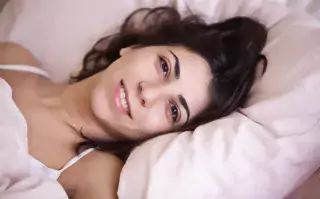News archive
On this page you can search for older news. Choose a topic, type of news or enter your own keyword to filter out news.
View compact
Imagine shrinking to the size of a doll in your sleep. When you wake up, will you perceive yourself as tiny or the world as being populated by giants? Researchers at Karolinska Institutet may have found the answer.
News
Karolinska Institutet is holding an international conference to call attention to the successes and setbacks experienced by research, healthcare and society at large.
News

If you want to look attractive and healthy, the best thing you can do is get a good night's sleep, finds researchers at Karolinska Institutet in a novel study published in BMJ online. For the first time, say the authors, there is scientific backing for the concept of beauty sleep.
News
